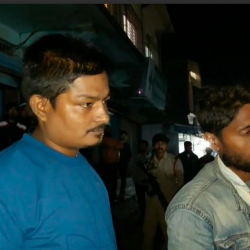The recent riots in Assam’s BTAD, were absolutely preventable, but could not be prevented due of the criminal dereliction of duty by officials starting from the officer-in -charge of Kokrajhar police station to the highest authorities of India’s military establishment, alleged Suhas Chakma, Director of Asian Centre for Human Rights (ACHR). Releasing a report on the recent Badoland Territorial Autonomous District (BTAD) disturbances, Chakma asked the Prime Minister, Man Mohan Singh to order an inquiry into the refusal by the Army to be deployed in the riot affected areas, fix the responsibility and take necessary measures including disciplinary action for criminal dereliction of duty by the Army and others.
Addressing the media persons at Guwahati Press Club, on September11 last, Chakma said that development of the standard operating procedure to establish the supremacy of the Chief Minister as the Chairman of the Unified Command and deployment of the Army on the Chief Minister’s instructions without any sanction from the ministry of defense in cases of riots or natural calamities was possible, which did not take place. The State government failed to deploy its 27,595 State Armed Police (SAP) in the riot affected areas and also did not deploy the Central Paramilitary forces at its command and instead kept waiting for the Central Government to instruct the neighboring states to send Para-military forces, alleged ACHR director.
Chakma pointed out that the refusal of the Army to be deployed directly led to increased loss of lives, displacement and consequent spread of hatred in the country. Both under the Armed Forces Special Powers Act 1958, wherein the Army operates in aid of civil power and the sections 130 and 131 of the Criminal Procedure Code, the Army is legally bound to obey the orders of the civilian authorities. By the time the Army moved in on July 25,2012, about 44 persons were killed and over two lakhs displaced. There must be accountability for such criminal dereliction of duty, he said.
ACHR report contained the visit of researchers in affected areas on July 27-28, 2012 followed by further visits on 11-12 and 27-29 August 2012. It stated that a number of anti-tribal secular activists from mainland India and the National Commission for Minorities (NCM) have been distorting and misinterpreting facts that caused the riots and further interpreted the riots along the communal lines.
The National Commission for Minorities (NCM) in its report accused the Bodos of engineering the riots by stating that ‘the Bodos need to be told firmly that they cannot under any circumstances engineer a mass exodus of Non-Bodos. Nor would they ever get statehood this way’. This statement itself is contradictory as it further states that ‘had prompt action been taken after two Muslims were killed on July 6 or after four Bodos were snatched away from the hands of the police and killed by Muslims, this conflict could have been avoided.’
The ACHR report further says that NCM failed to highlight the fact that there was a gap of 14 days between the killing of two Muslims on July 6 and the killing of four Bodos on July 20 and there were no riots during the intervening period. The riots actually started on 21 July following the lynching of four Bodo tribals by a mob belonging to the Muslims after snatching them from the custody of Assam Police on July 20, 2012, the report says.
ACHR lamented that a number of anti-tribal secular activisms have described the riots as ethnic cleansing and the autonomous councils of the tribals as ‘incentivizing ethic riots started and spread because of the abysmal failure of the state to enforce the law. Officer in charge of the Kokrajhar police station and his police patrol party were witnesses to the lynching of the four Bodo youths after being snatched away from their custody on July20, but no one has been arrested.
ACHR has stated that the camp conditions, where over forty thousand displaced persons were sheltered, have been deplorable and Government of India has failed to adopt minimum standards in humanitarian response as provided in the sphere guidelines despite the country having born out of riots in 1947. In most of the camps, food was not supplied on time and adequate number of utensils were not supplied. There are very few provisions for drinking water and excreta disposal. The inmates are not willing to return to their homes due to security concerns.. However, some families, mostly agriculturists whose houses were not burnt down returned home to cultivate their paddy fields. But the returnees have reportedly neither been provided adequate monetary compensation nor security. Further the State government has officially closed down two Muslim relief camps namely, Failaguri Kembolpur relief camp and Kathalguri/Jacobpur relief camp both in Kokrajhar district to force the inmates to leave the relief camps, ACHR alleged.
- 7767 reads









Add new comment